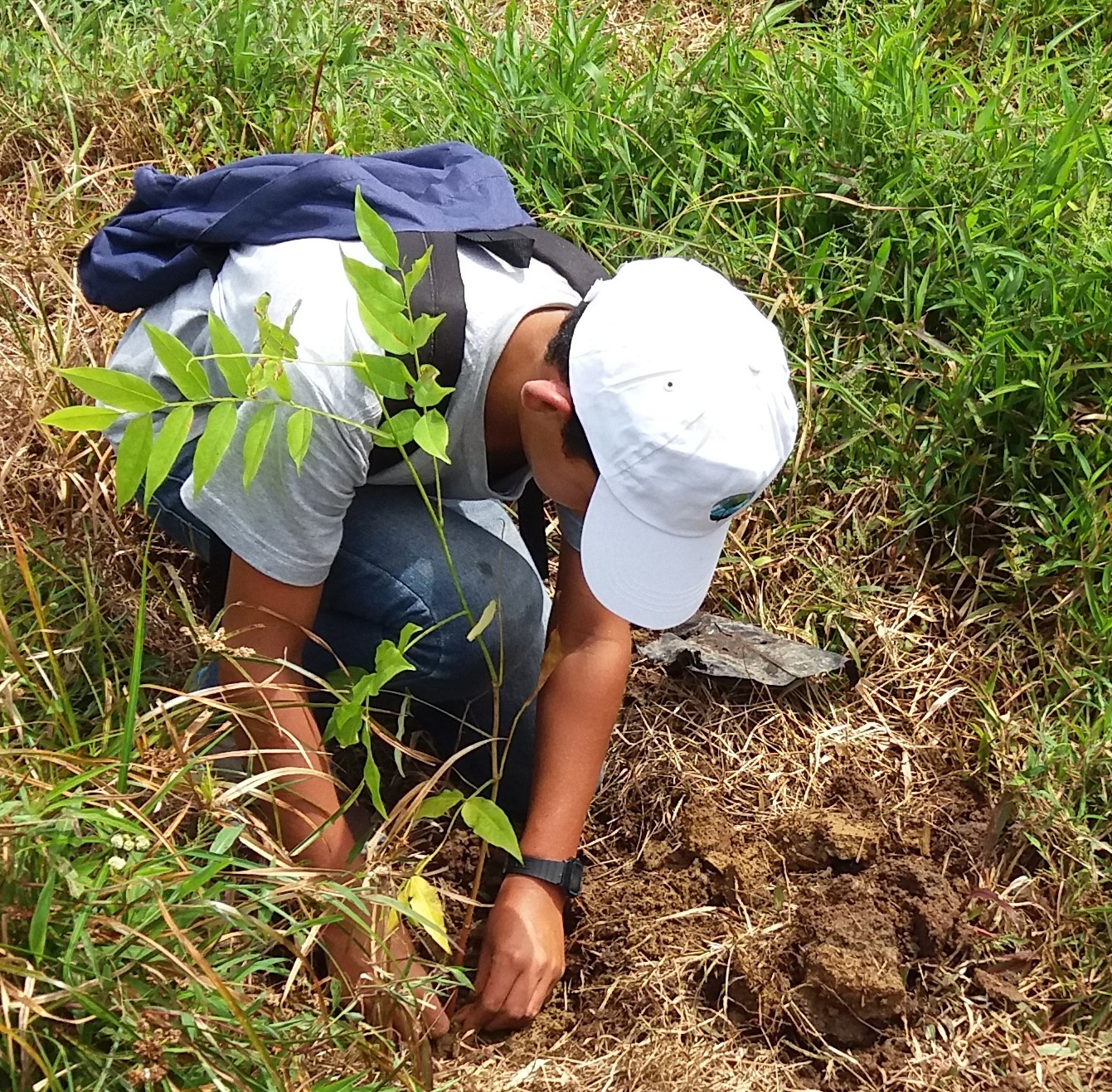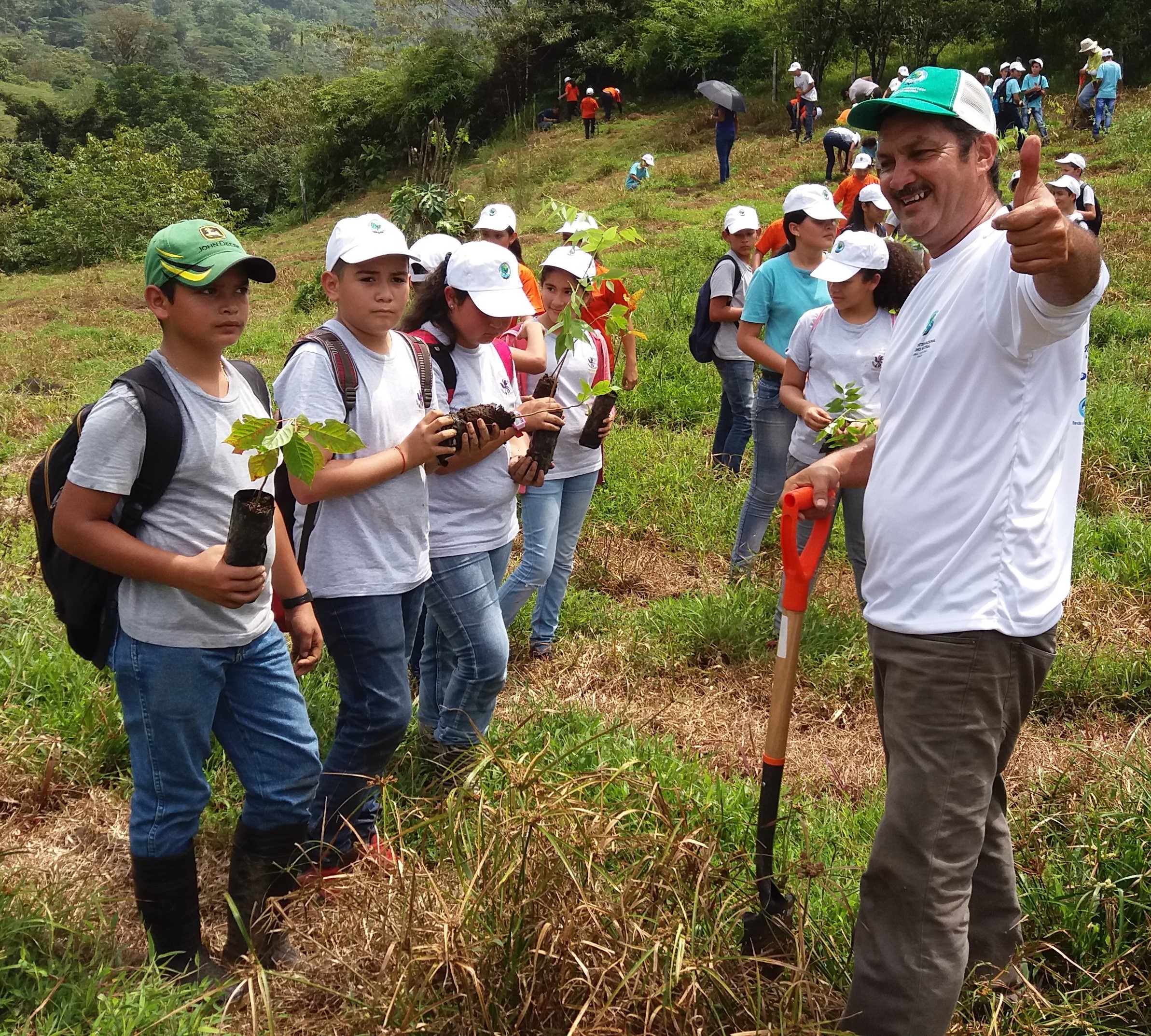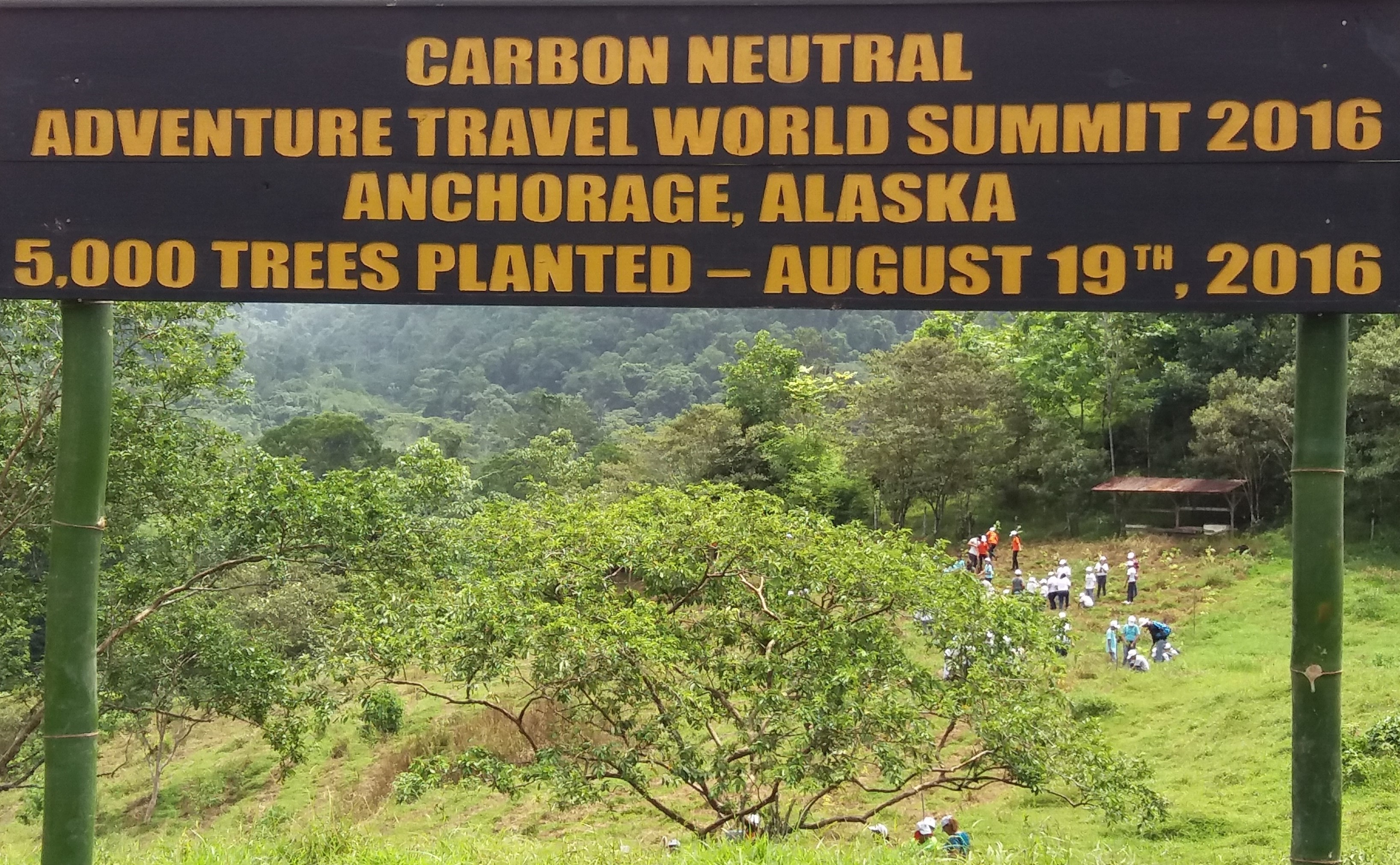Costa Rica News – In a bold move to show the world the importance of global climate change, Costa Rica partnered with the Anchorage Convention & Visitors Bureau in Alaska and the Adventure Travel Trade Association to plant 5,000 trees to make the upcoming Adventure Travel World Summit 2016 completely carbon neutral.
 In one of the country’s largest tree planting events in one day, more than 350 volunteers planted 5,000 native trees on Aug. 19, 2016 on a private reserve in Bajos del Tigre in Santa Marta, Siquirres, in the Limón province. The International Carbon Neutral Project Alaska – Costa Rica seeks to compensate the carbon emissions generated by the annual Adventure Travel World Summit (ATWS) of the Adventure Travel Trade Association, to be held Sep. 19 to 22, 2016 in Anchorage, Alaska.
In one of the country’s largest tree planting events in one day, more than 350 volunteers planted 5,000 native trees on Aug. 19, 2016 on a private reserve in Bajos del Tigre in Santa Marta, Siquirres, in the Limón province. The International Carbon Neutral Project Alaska – Costa Rica seeks to compensate the carbon emissions generated by the annual Adventure Travel World Summit (ATWS) of the Adventure Travel Trade Association, to be held Sep. 19 to 22, 2016 in Anchorage, Alaska.
The colossal tree planting event was organized by the Costa Rican whitewater rafting tour company Rios Tropicales, and the Costa Rican Network of Private Nature Reserves, in partnership with Visit Anchorage, the Adventure Travel Trade Association, Alaska Airlines, the Costa Rica Tourism Board (ICT), and EARTH University. The prestigious EARTH University in Siquirres, Costa Rica, verified the tree planting and will ensure that the level of carbon compensation accurately offsets the carbon emissions generated by travel to the ATWS.
“It’s a great step toward showing the rest of the world what can be done. This is a good example of how two countries can work together, and will show other cities having conferences that they can do things to take care of the environment,” said Rafael Gallo, Co-founder and President of Rios Tropicales and President of the Costa Rican Network of Natural Reserves. “It can be reciprocated anywhere in the world. Planting trees in Costa Rica by an adventure tour company shows the whole world how to be carbon neutral.”
Gallo and representatives from ICT will represent Costa Rica at the ATWS 2016 to officially present the certificates of carbon neutrality as a result of the initiative.
Giving the World a Breath of Fresh Air: Planting 5,000 Trees
On the morning of Aug. 19, 2016, more than 350 volunteers gathered in the hot, steamy sunshine in Santa Marta de Siquirres on the farm “Las Terciopelos”, owned by Rafael Gallo and his partner Jimmy Nixon, co-founder of Rios Tropicales. They offered 10 acres of their 247-acre (100-hectare) farm for the tree planting project. It is part of the large Rios Tropicales private reserve that protects 1,977 acres (800 hectares) of primary rainforest and pastureland being converted back to rainforest. Gallo and Nixon have already reforested more than 44 acres (18 hectares) on their farm since 2008, and plan to reforest the entire property over the next 10 years.
Volunteers organized by the Costa Rican Network of Private Nature Reserves came from San Jose by buses donated by Rios Tropicales and ICT. They were treated to breakfast at the Rios Tropicales operations center “El Cairo” near Siquirres before arriving at the farm. Other volunteers, including 113 local schoolchildren from Jabillos, El Tigre, Tres Equis and Linda Vista, came from many other areas of Costa Rica.
Over four hours, enthusiastic volunteers planted 5,000 sapling trees in 10 kinds of native hardwoods like Pilon, Guapinol and Mountain Almond that are proven to be good for this climate and region of Costa Rica. The 3,000 Mountain Almond trees planted will eventually provide food for endangered Great Green Macaws, endemic to Costa Rica’s Caribbean region.
In about 12 to 14 years, these trees will capture the approximately 1,200 tons of carbon estimated to be produced during ATWS 2016 by people traveling to the conference, principally on flights, according to Edmundo Castro, head of carbon neutrality for EARTH University. Additionally, Visit Anchorage is taking steps to reduce carbon emissions during the conference by eliminating hotel shuttles to the Anchorage convention center and encouraging participants to walk, ride bikes, or take public transportation.
“By planting trees, people are taking ownership of the oxygen that they use and will think about the carbon that they produce,” noted Gallo. “It’s really rewarding to see people plant a tree and kiss it goodbye, and know that it will grow and be part of the rainforest.”
Gallo also ensured the tree planting event was trash neutral. All plastic bags from the trees and all trash generated were stuffed inside an old raft placed around the event memorial sign, which will be turned into a planter.
Costa Rica: “Birthplace” of Carbon Neutrality
The concept of carbon neutrality and measuring carbon footprints first began in Costa Rica, recognized as a global leader in sustainable practices. The country boldly declared in May 2007, under former President Oscar Arias, that it would achieve carbon neutrality by 2021. The challenge started a competition among countries as to who will be the first to reach the important goal, and thus has pushed the concept of climate change further into the world spotlight.
To be carbon neutral means removing as much carbon dioxide from the atmosphere as is emitted. The Costa Rican government is taking steps to offset all of the country’s carbon dioxide emissions. Among these include covering energy needs from renewable sources, which Costa Rica has successfully achieved by about 95%, mostly with hydropower, followed by geothermal, wind, solar and biomass sources.
Costa Rica took the lead in the Paris Agreement on Climate Change 2015 by the United Nations with its diplomat Christiana Figueres playing a pivotal role in negotiations as Executive Secretary of the UN Framework Convention on Climate Change (UNFCCC).
Climate change is now recognized as such a threat to humanity that events as big as the Olympic opening ceremony in Rio de Janeiro called attention to the subject. The United Nations declared 2017 to be the International Year of Sustainable Tourism for Development, and as Costa Rica continues to work toward its goal of carbon neutrality by 2021, the hope is that more events and organizations in the world take up the carbon neutral challenge.
For more information, contact Rafael Gallo, President of the Costa Rican Network of Natural Reserves & Co-founder and President of Rios Tropicales; office: (506) 2233-6455;
cell: (506) 8398-7676; [email protected].

